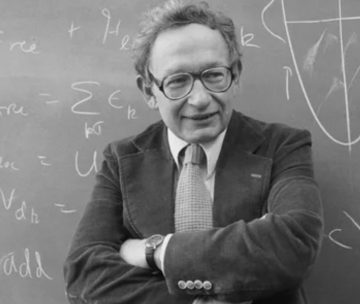John Horgan in Scientific American:
 Philip W. Anderson speaks in a slow, deliberate growl, pausing between sentences to ponder his next move. His basal expression, too, is deadpan. But like some exotic ceramic in an unstable state, Anderson’s mood can flip in an instant between different modes.
Philip W. Anderson speaks in a slow, deliberate growl, pausing between sentences to ponder his next move. His basal expression, too, is deadpan. But like some exotic ceramic in an unstable state, Anderson’s mood can flip in an instant between different modes.
Discussing a conference he just attended, the Nobel laureate and professor of physics at Princeton University recalls a session on cancer with obvious delight. The talks left him marveling at the “layers upon layers upon layers” of error-correction mechanisms that enable genes to replicate with scarcely a mistake. Researchers, he exults, will have to discover profound new principles to account for this phenomenon.
On the other hand, a session on his own specialty, high-temperature superconductors, was “horrible.” Anderson accuses researchers of “looking under the streetlight” instead of venturing away from known territory for solutions to their problems.
More here.
